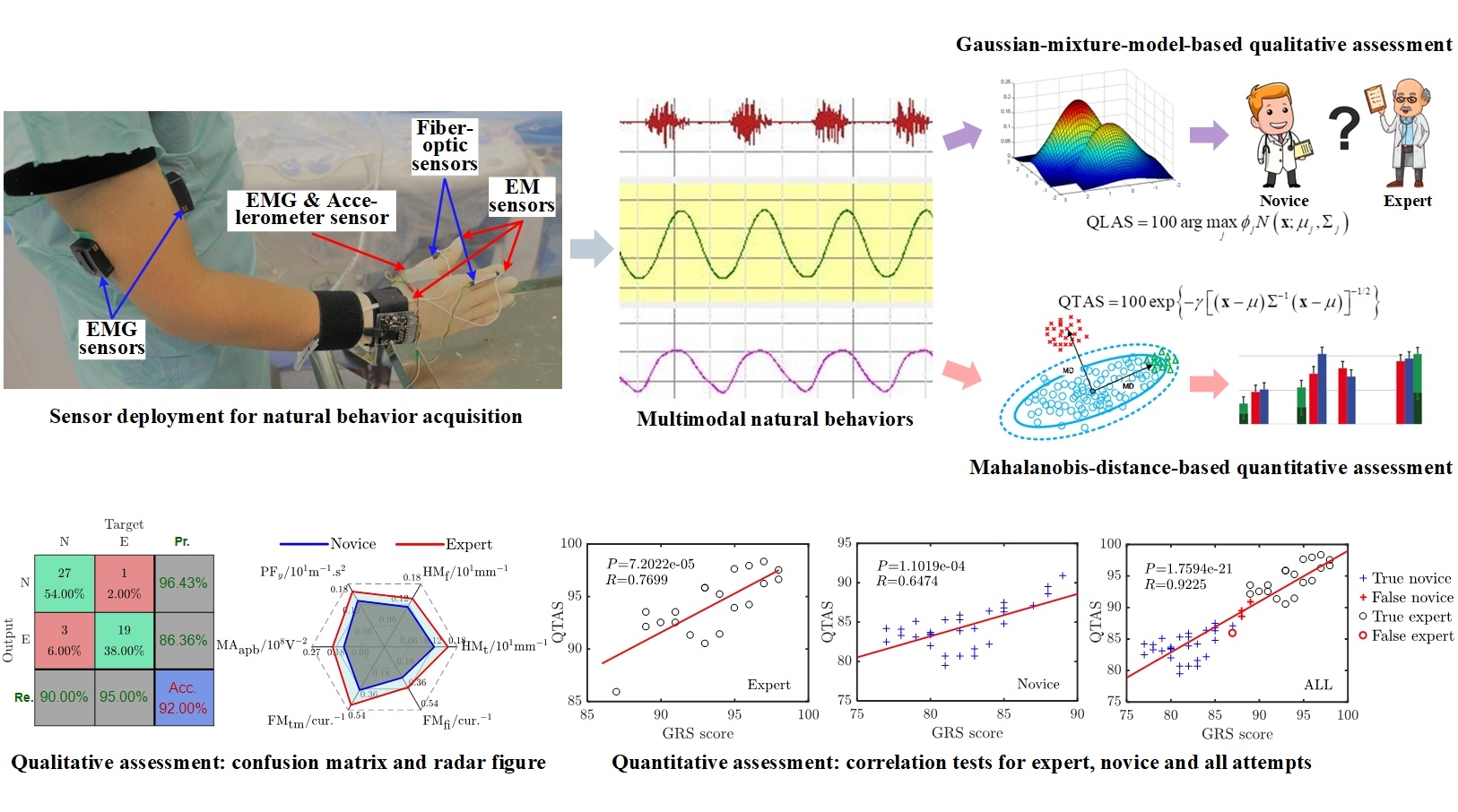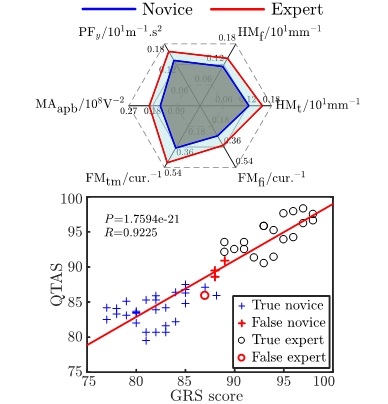 Technical skill assessment plays an important role in the professional development of an interventionalist in percutaneous coronary intervention (PCI), however, most of traditional assessment methods are time-consuming and subjective. This paper aims to develop objective and automatic assessment techniques for PCI.
Technical skill assessment plays an important role in the professional development of an interventionalist in percutaneous coronary intervention (PCI), however, most of traditional assessment methods are time-consuming and subjective. This paper aims to develop objective and automatic assessment techniques for PCI.
In this study, a natural-behavior-based assessment framework is developed by defining two types of novel scoring methods for qualitative and quantitative assessment of technical skills in PCI. In vivo porcine studies were conducted to deliver a medical guidewire to two target coronaries of left circumflex arteries by six novice and four expert interventionalists. Simultaneously, four types of natural behaviors were acquired from the subjects’ dominant hand and arm. The features extracted from behaviors of different skill-level groups were compared using Mann-Whitney U-test for effective behavior selection. The effective ones were further applied in Gaussian-mixture-model-based qualitative assessment and Mahalanobis-distance-based quantitative assessment. Experimental results show that the qualitative assessment achieves an accuracy of 92% to distinguish the novice and expert attempts, which is significantly higher than that of using single guidewire motions. Furthermore, the quantitative assessment can assign objective scores for expert, novice and all attempts, respectively. The Pearson correlation test is further used to verify its effectiveness, indicating high correlation (R=0.9225) to those obtained by traditional methods.
This study provides a novel approach for objective, effective and automatic assessment by qualitatively and quantitatively analyzing interventionalists’ natural behaviors in PCI. Moreover, the promising results demonstrate the great importance and effectiveness of the proposed method for promoting the development of objective assessment techniques.

